Speakers
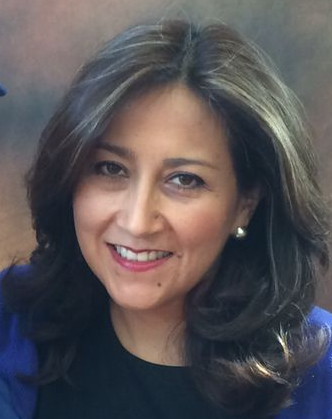
International consultant on Inclusion and Disability, she is an activist and advocate for the rights of people with disabilities, inspired by her son, a self-advocate with Down syndrome.
She was president of RIADIS – Latin American Network of Organizations of Persons with Disabilities and their Families (2012–2021) and IDA – International Disability Alliance (2018–2021), positions that placed her at the center of the global movement.
She is currently a board member of Down Syndrome International (DSi) and continues to support the development of regional and international advocacy networks. Her career combines personal experience, organizational leadership, and international representation.
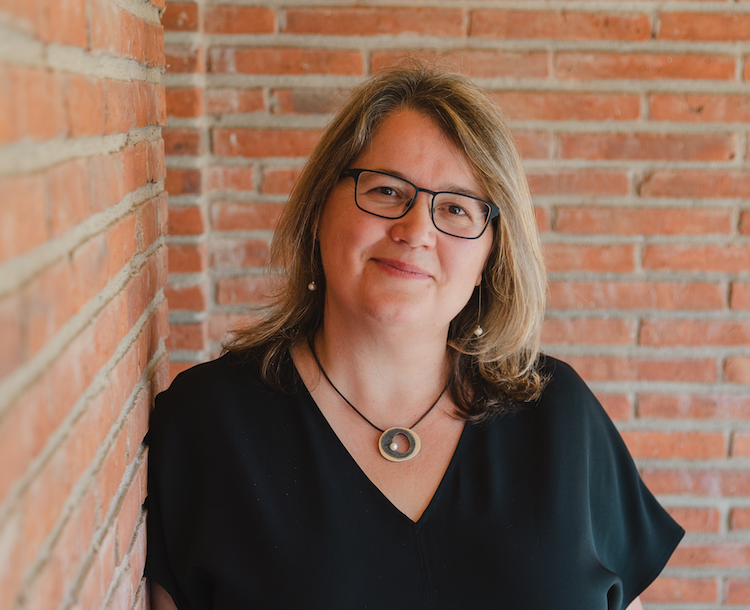
Anna Matamala is a Full Professor at the Universitat Autònoma de Barcelona.
She is a member of Transmedia Catalonia, a research group investigating media and digital accessibility. She is also the director of AccessCat, a network of research groups in Catalonia working on accessible communication.Anna has participated in several projects on media accessibility and has published books and academic articles. Anna is one of the creators of the MAP platform and, since 2017, has directed LAB-TTAV, a consulting and training service.
Anna is very active in standardization work with national and international committees, such as UNE, CEN/CENELEC/ETSI, and ITU. She co-edited an ISO standard on audio subtitling (ISO/IEC 23859:2023) and an ISO standard on easy-to-understand language (ISO/IEC 23859:2023).
More information: webs.uab.cat/amatamala
%2015.53.13_53a67113.jpg)
Ana Paula is the National Secretary of the Rights of People with Disabilities within the Ministry of Human Rights and Citizenship, as well as the President of the Brazilian National Council of People with Disabilities.
She’s a public server, specialized in School Physical Education, and in Public Management, through the National School of Public Administration (Escola Nacional de Administração Pública - Enap). She is also an associate researcher at Funcação Oswaldo Cruz.
She was advisor to the General Secretariat of the Presidency, and one of the coordinators of the Presidency’s Inclusion of People with Disabilities program (2013-2026).
%2016.53.00_140d3981.jpg)
Co-author of the book "Change the way you speak, and I will change the way I listen” published by the Carpe Diem Association, presented at the 1st International Down Syndrome Day Conference in 2012 at the UN in New York.
She worked in companies and attended regular schools. She wrote children's books such as “Let's Start a Band” and "Come on, It's Time to go."
A self-advocate for the Simbora Gente Institute, she is a visual artist, painting on wood, silk, and ceramics.
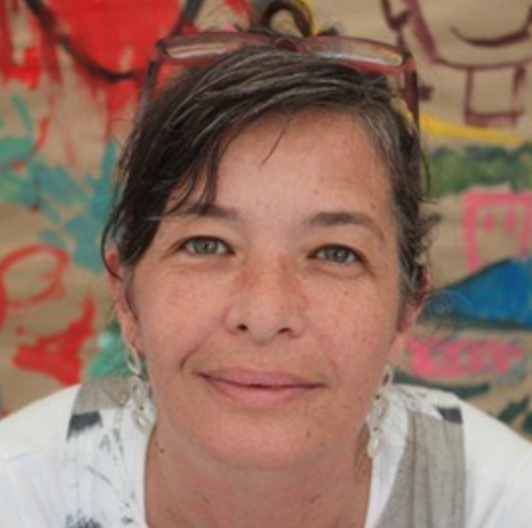
A pedagogue with a master's degree in Educational Psychology, she is the founder and coordinator of Mais Diferenças, a leading organization for inclusive education and culture projects in Brazil.
With over 35 years of experience, she has worked as a teacher, pedagogical coordinator, and technical director in inclusive education initiatives. Under her leadership, Mais Diferenças created innovative projects that expanded access to reading and culture for people with disabilities.
Among these initiatives, the Mais Diferenças Library, dedicated to accessible works and the promotion of cultural diversity, stands out. She is also the author of publications in the field and a consultant on public inclusion policies.
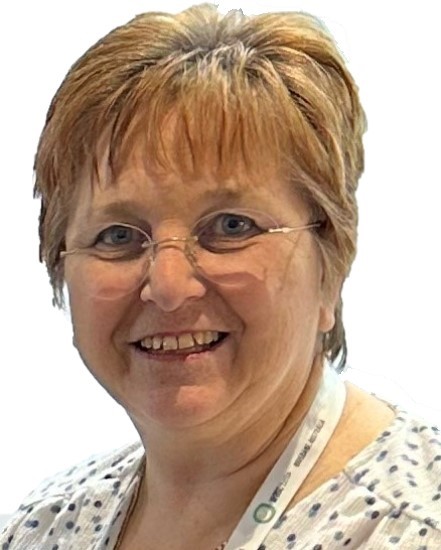
Speech pathologist with almost 40 years’ experience, working with people with multiple and complex communication needs, including those with intellectual disability.
Founder and pioneer of the Easy English approach: started in Australia, in 2005. Easy English development incorporates universal access and inclusion for all. Consultant on all topics that the community needs for inclusion and participation.
Collaborated with Plain Language Technical Standard and the ISO for Plain Language.
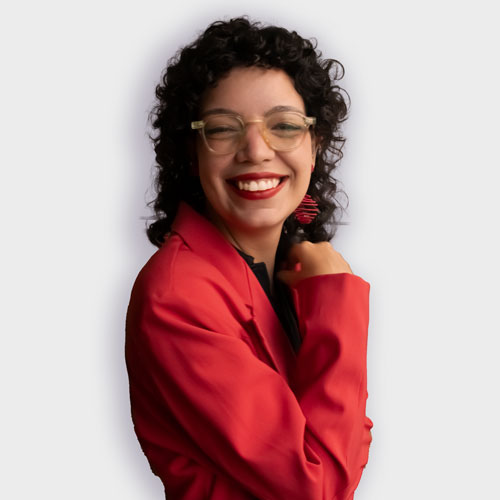
Inclusive Design and Visual Communication specialist, graduated in Design at PUC-Rio with a postgraduate degree in Service Design. She works with product design, digital interfaces, interations, UX, and accessibility in social impact projects.
She authored the chapter on accessible visual language in the book "Simple as This– How to use Easy Language" (Simples Assim – Comunique com todomundo) (Fiocruz), validated with audiences of different cognitive and reading levels.
With experience at organizations such as ITS Rio and Quartzo Comunicação, Cecilia develops websites, runs diagnostics reports, produces educational materials, and campaigns. She is currently deepening her research in UX, UI, and digital accessibility, integrating technology, user-centered design, and inclusion.
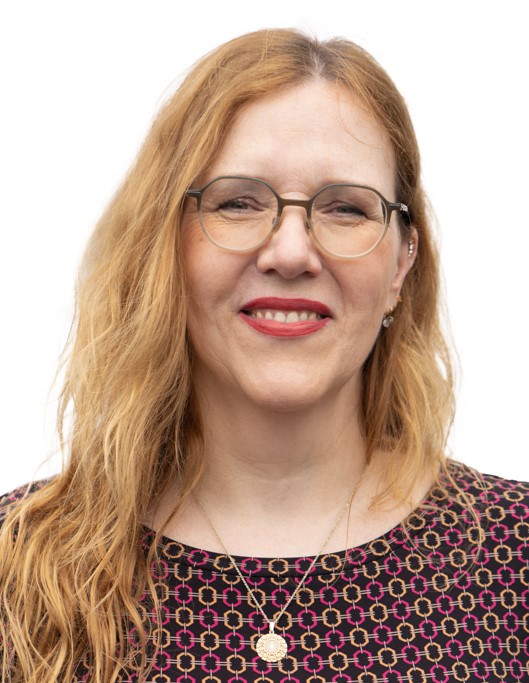
PhD in Linguistics, she developed the Easy Language Plus model and directs the Research Center for Easy Language and Accessible Communication at the University of Hildesheim, where She is also a full professor and coordinates the Master's in Accessible Communication.
She is the author and co-author of numerous studies, including the Accessible Communication Handbook (2019, 2024), and participated in the European project EASIT, on Easy Language in audiovisual media. From 2020 to 2024, she coordinated research on accessible healthcare funded by the Robert Bosch Foundation, focusing on chronic diseases and health literacy.
She also serves as a consultant to the German government on digital accessibility and is a member of international academic and standardization networks. Her work influences policymaking, professional practice, and scientific research in the field of inclusive communication.
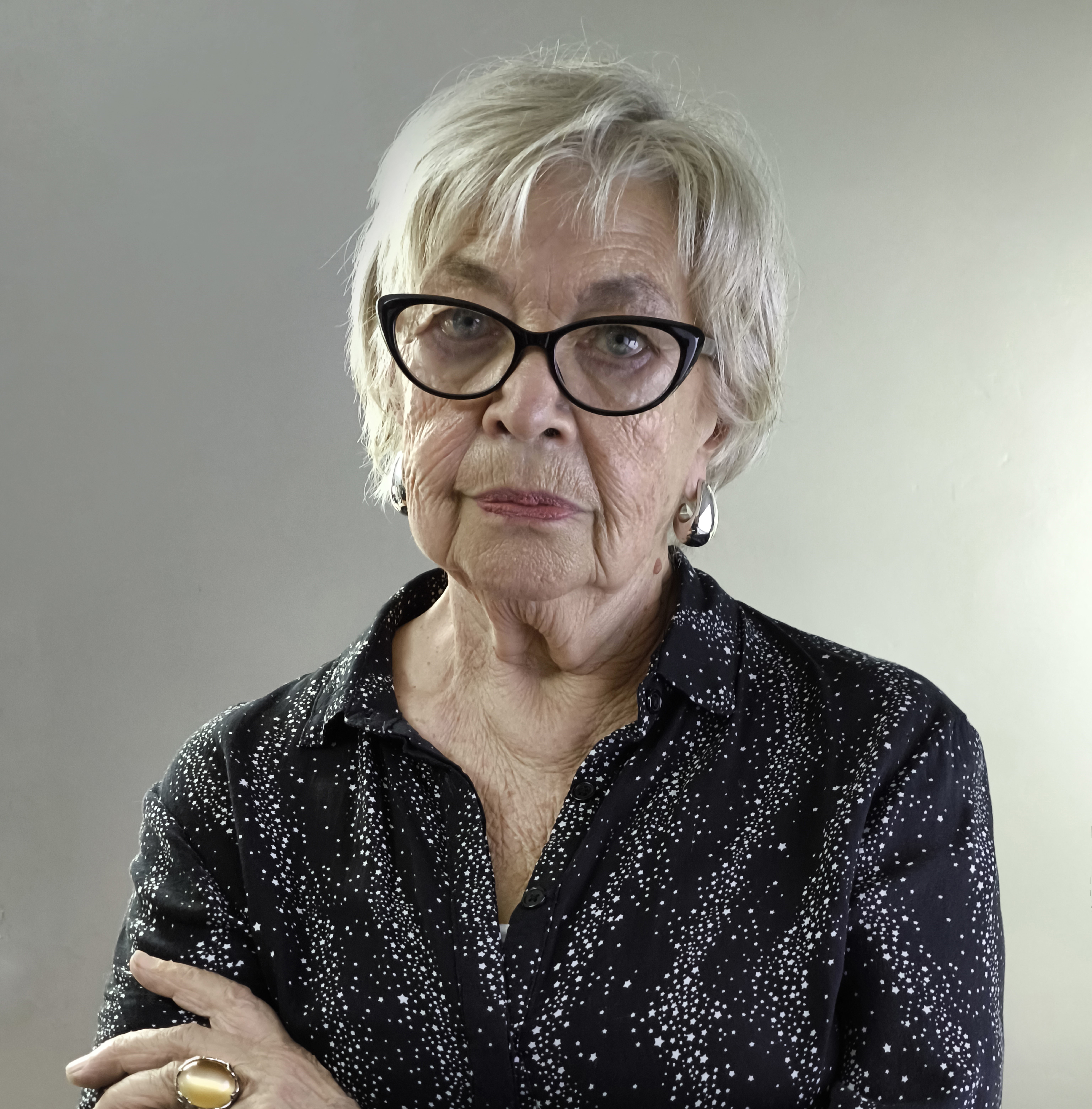
Born in Buenos Aires in 1941, she is a professor of Literature, Languages, and Latin, with a postgraduate degree in Cultural Analysis and Communication. As a teacher, she held leadership positions in secondary education, as a researcher, teacher trainer, and elementary and high school teacher in the province of Buenos Aires.
Since 2016, she has been training in neurolinguistics and facilitated reading. At the Visibilia Foundation, she heads the linguistics department, is a member of the training team, and coordinates the Easy Reading Club (CLEF).
She is the author of easy-to-read adaptations of several literary texts by classic authors, published by Visibilia Publishing, and the Easy Reading Manual, co-published in 2022 by the Buenos Aires University Press (EUDEBA) and Visibilia Publishing.
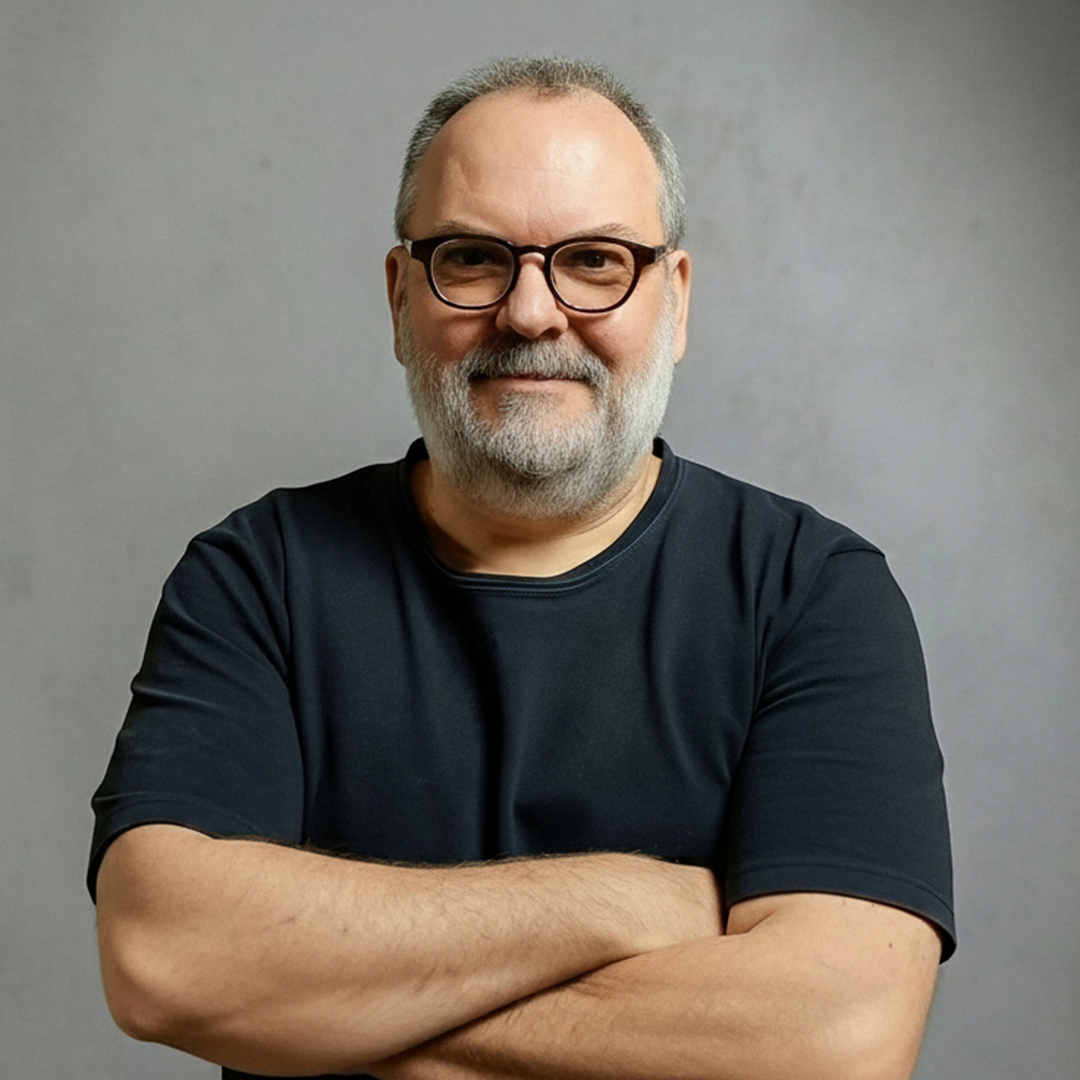
Graphic designer specialized in cognitive accessibility, he is the president and co-founder of the Visibilia Foundation, dedicated to the production and adaptation of Easy Reading content. He coordinates the institution's editorial visual design department.
A tenured professor of Graphic Design at the University of Buenos Aires (UBA), he was director of the Graphic Design Program at FADU-UBA (2014–2022) and currently directs the Center for Research on Urban, Architectural, and Transportation Barriers (CIBAUT).
With over 30 years of experience, she has developed projects in accessible editorial design, hospital signage, and inclusive communication. She also serves as a speaker and judge at national and international design conferences, promoting innovation and accessibility practices.
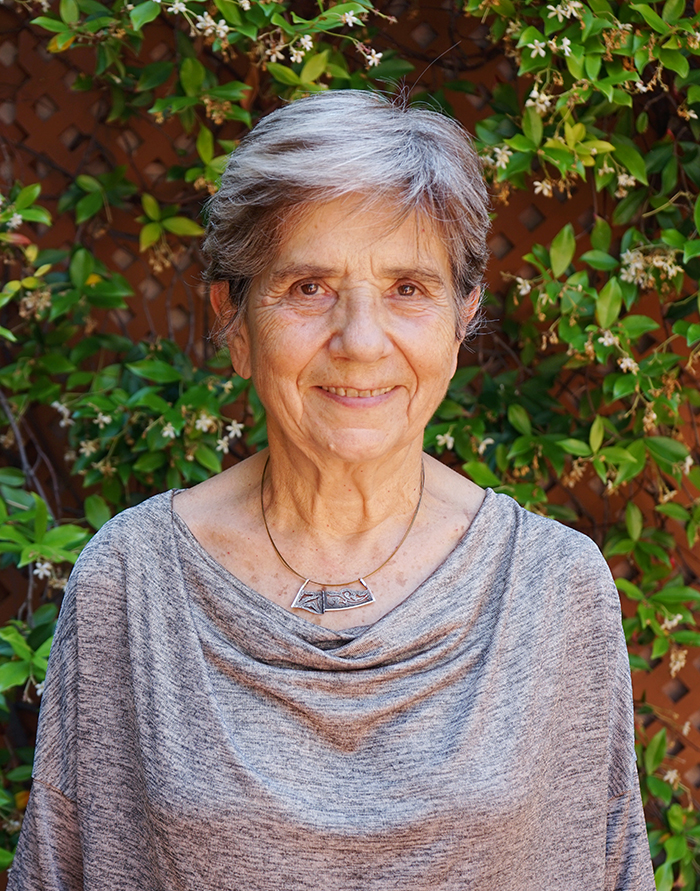
Founder and co-director of the Easy Reading Association of Catalonia, created in 2003, she is a pioneer in disseminating the methodology in Spanish. Her work has consolidated Easy Reading as a social and editorial practice, expanding access to reading in diverse contexts.
A graduate in Economics, she has also taught in the Information and Documentation courses at Pompeu Fabra University (UPF) and the Open University of Catalonia (UOC). She coordinates training on Easy Reading writing techniques, training professionals in areas such as education, communication, and public policy.
In addition to supervising adaptations for publishers and public administrations, she works on cultural and social inclusion projects. Her career combines academic experience, editorial practice, and management of initiatives that promote citizenship through accessible reading.
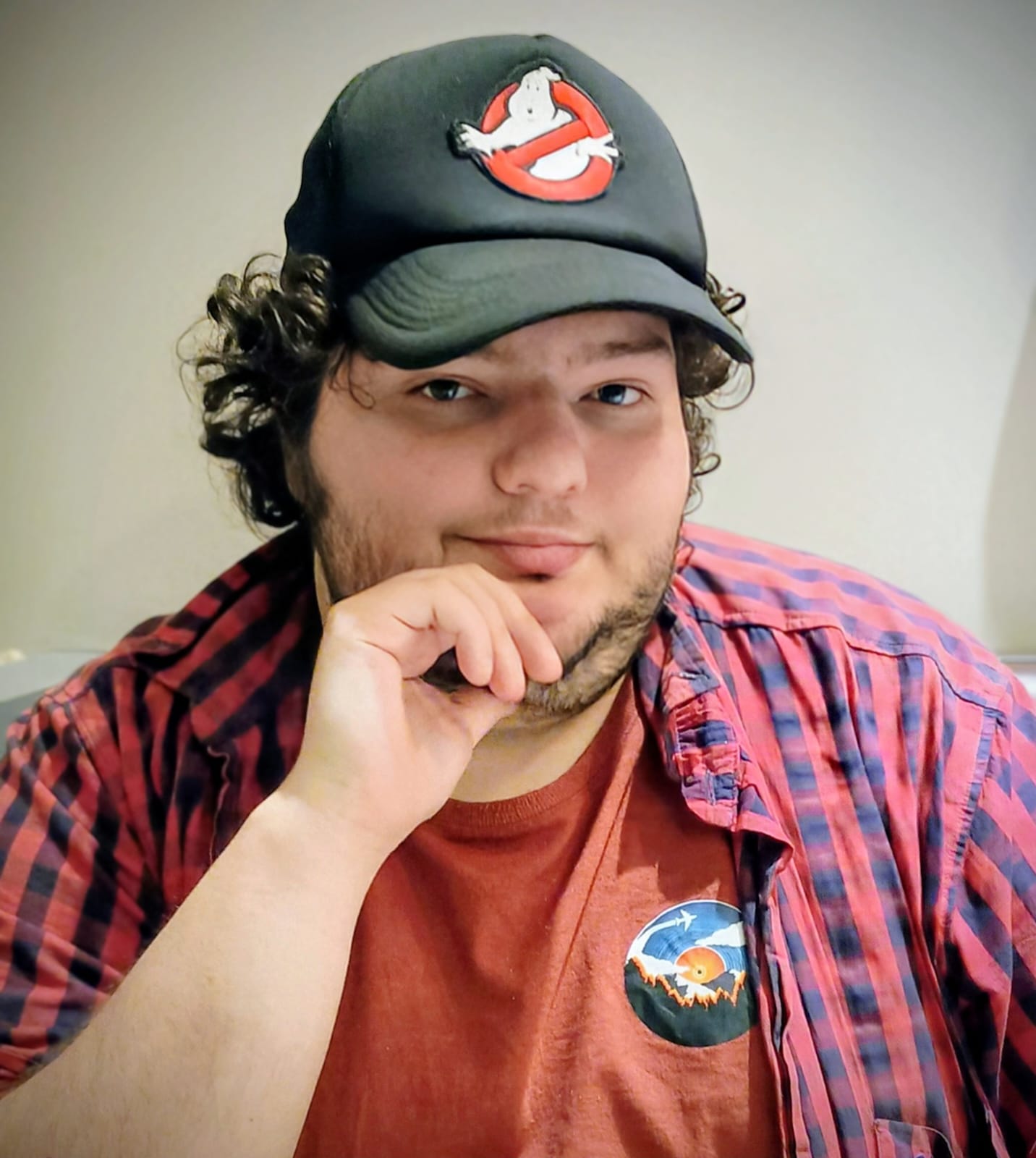
He is an Easy Reading validator and cognitive accessibility activist. Since 2020, he has been a member of the Visibilia Foundation, where he validates literary, legal, and informational texts, as well as images and cultural spaces.
He has participated as a guide for ArteBA Acessível and projects at the Museum of Modern Art in Buenos Aires. He also works as a teaching assistant in training courses on Easy Reading and cognitive accessibility at the University of Buenos Aires (FADU).
In 2024, he spoke at the Autism Congress in Curitiba, Brazil, on inclusive education. He is a member of Empower Us, the international network of self-advocates of Inclusion International.
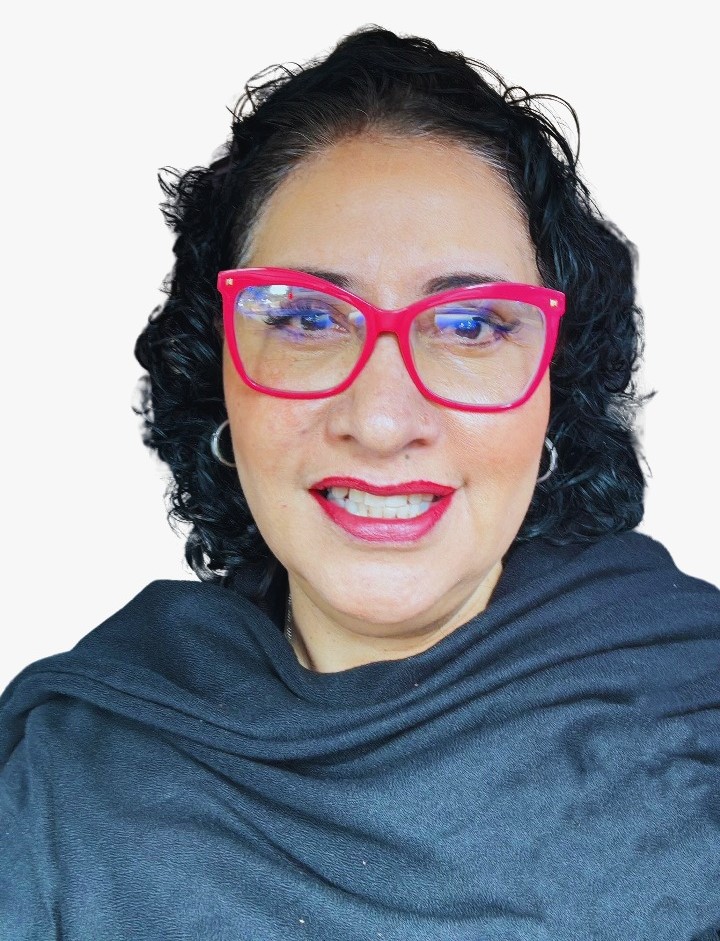
Director of the Associative Movement of CONFE, an organization with more than 100 affiliated entities in Mexico, where she has been active for 26 years in the movement for the rights of people with intellectual disabilities.
She coordinates self-defense programs and initiatives to strengthen social participation, with a focus on the empowerment of women with intellectual disabilities. She also serves on working groups at the OAS and RIADIS, contributing to the formulation of regional policies.
She is a co-founder of the Lectura Fácil México collective, responsible for adapting cultural and educational texts into accessible formats. Her work combines institutional leadership, international network activism, and advocacy for gender equality.
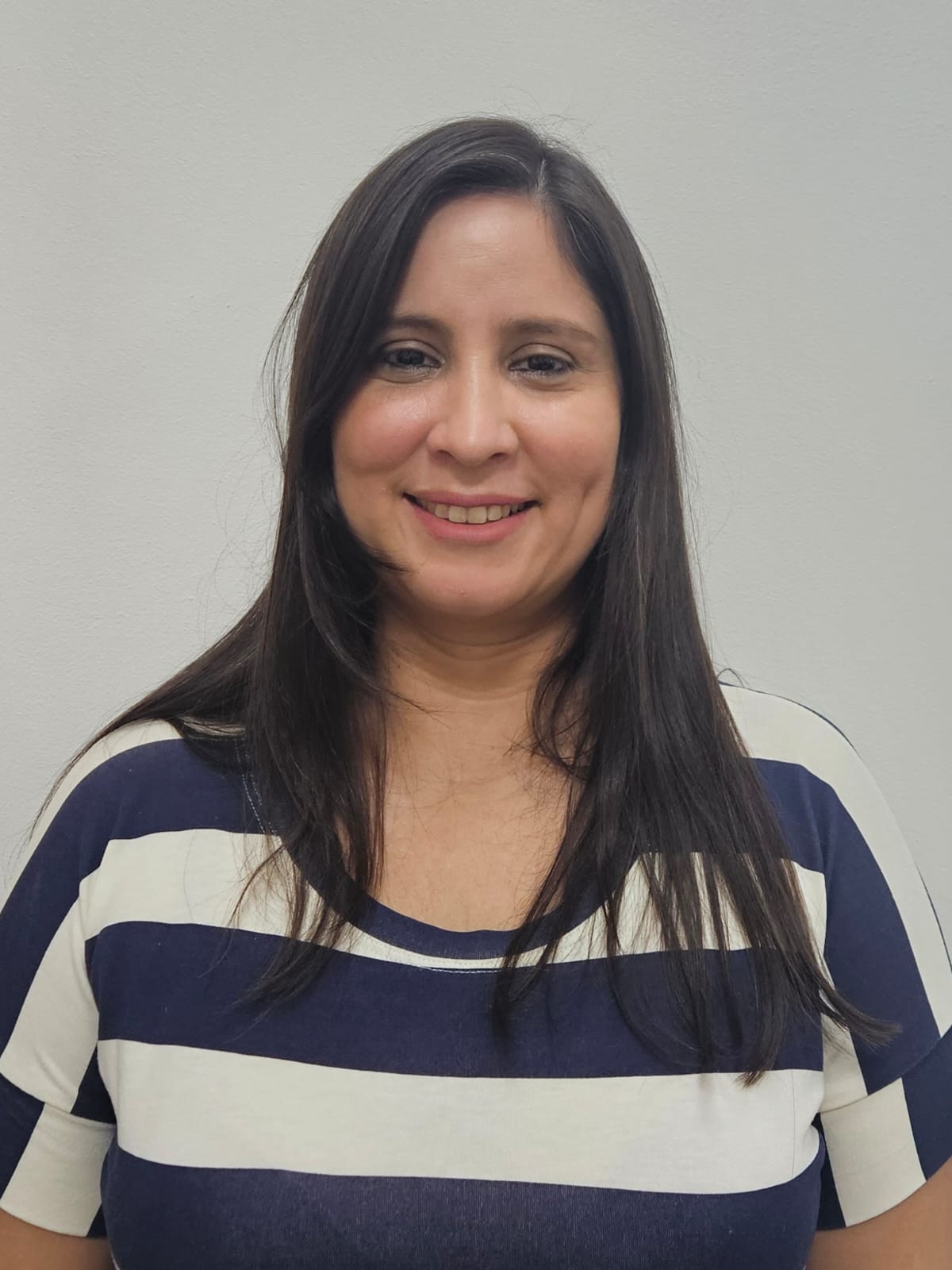
A specialist in Plain Language and Indigenous Inclusion, she holds a Master's degree in Social Work and Sustainability from the Federal University of Amazonas (UFAM). She works at the Amazonas Court of Justice (TJAM), where she coordinates innovative projects in the Innovation Laboratory.
She created the Citizen Language project for Indigenous communities, which translated legal terms into the Nheengatu language, expanding access for the population. traditional approaches to the justice system. Her work has been recognized nationally as a benchmark in social innovation.
She is also part of the UFAM Public Policy and Governance Laboratory, combining institutional practice and academic research. Her work contributes to the appreciation of cultural diversity and the strengthening of citizenship through accessible language.
%2012.53.17_637f1ed0.jpg)
PhD in public health and researcher in the Department of Health Administration and Planning at the Sérgio Arouca National School of Public Health (ENSP) at Fiocruz. She coordinates the Specialization on "Qualification of the Care Network for Persons with Disabilities" and co-coordinates the Specialization on "Human Rights, Inclusion, and Accessibility for Persons with Disabilities," both at ENSP/Fiocruz.
She represents Fiocruz in national and international forums and teaches courses to qualify the work of social workers and managers in the healthcare of persons with disabilities.
She coordinates and participates in research projects on the health of people with disabilities, all with the participation of people with disabilities themselves. She produces and disseminates content on ableism and accessible healthcare (in plain language, sign language, audio-described), in cordel literature, and free of charge, available at Fiocruz's Arca Repository. Mother of two children, one of whom has an intellectual disability, she is a counselor for the Down Syndrome Movement.
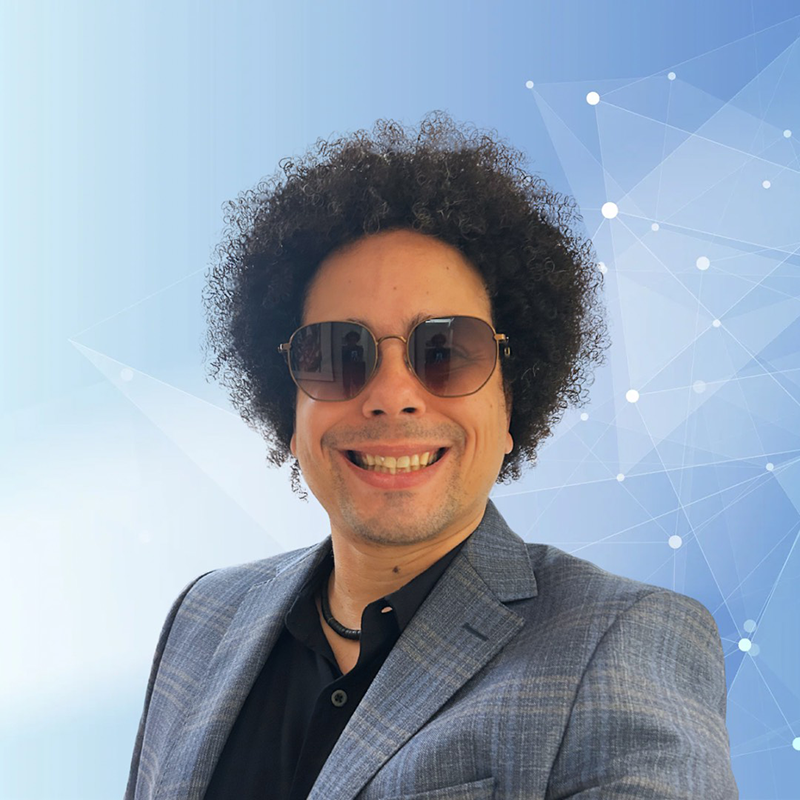
Specialist in Artificial Intelligence, Product Management, and Innovation, with nearly 20 years of experience in software development.
At the Rio de Janeiro Public Prosecutor's Office (MPRJ), he leads digital transformation projects, such as Integra Extrajudicial.
A co-founder of startups, he is dedicated to creating digital solutions with a positive impact on society. Disturbed by legalese, she became involved with Plain Language and combined this movement with AI experiments, creating the Leibilidade AÍ prototype.
%2016.32.06_49f03f22.jpg)
Liana holds a PhD in Language Studies from the Federal University of Rio Grande do Sul (UFRGS). At Pólen – the Public Management Innovation Lab at Fiocruz’s National School of Public Health (ENSP) – she works as a specialist in Plain Language and Health Literacy.
In 2019, she received the Google Research Awards for Latin America (LARA) with the project MedSimples Tool: an automated simplification tool for increased accessibility in health communication. She is the author of the Icici/Fiocruz Plain Language Guide and served as technical reviewer of the Plain Language Manual of the Brazilian House of Representatives.
In 2024, she joined the Fellowship Program in Terminology at the World Intellectual Property Organization (WIPO) – a United Nations agency – in Geneva. Currently, she is part of the coordination team of the Plain Language Network/LS Lab and a member of the Research Group on Textual and Terminological Accessibility at UFRGS.
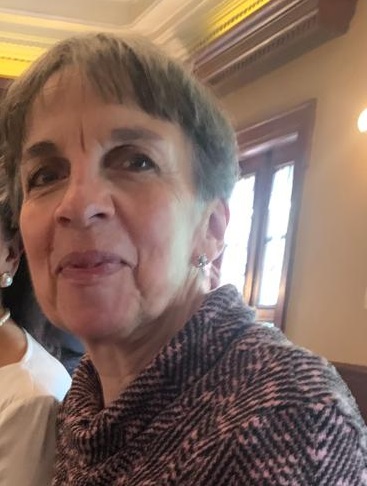
Director of the Associación Palabras Claras (Clear Words Association), a Colombian organization dedicated to promoting Easy Reading, Plain Language, and Easy Language. She has worked in the publishing industry for over 15 years, with experience in editing and adapting academic, medical, and literary texts.
She graduated in Bacteriology and specialized in International Spanish Editing in Buenos Aires. She worked as a style editor for medical and academic publishers until founding Palabras Claras in 2017, where she focused her work on cognitive accessibility.
Under her leadership, the association developed Easy Reading projects aimed at people with reading comprehension difficulties. Her work combines editorial experience, social practice, and a commitment to the democratization of reading.
%2014.25.35_74b757ef.jpg)
Creator of GRALHA – Artificial Intelligence in Plain Language, she is the Innovation Manager at the Federal Court of Paraná (JFPR). With a law degree, she specializes in Public Management, Innovation, and Design Thinking, with experience in administrative management, ceremonial procedures, and staff training.
Her career combines technological innovation and institutional transformation, focusing on Plain Language, inclusion, and accessibility. She participates in strategic projects that promote efficiency and humanization in the Judiciary, disseminating agile and collaborative methodologies.
She is a member of PLAIN, Clarity International, and the Comunica Simples Network, and works as a speaker and teacher on topics related to innovation and accessible communication. Her purpose is to transform the culture of the public sector, bringing justice closer to the citizen.
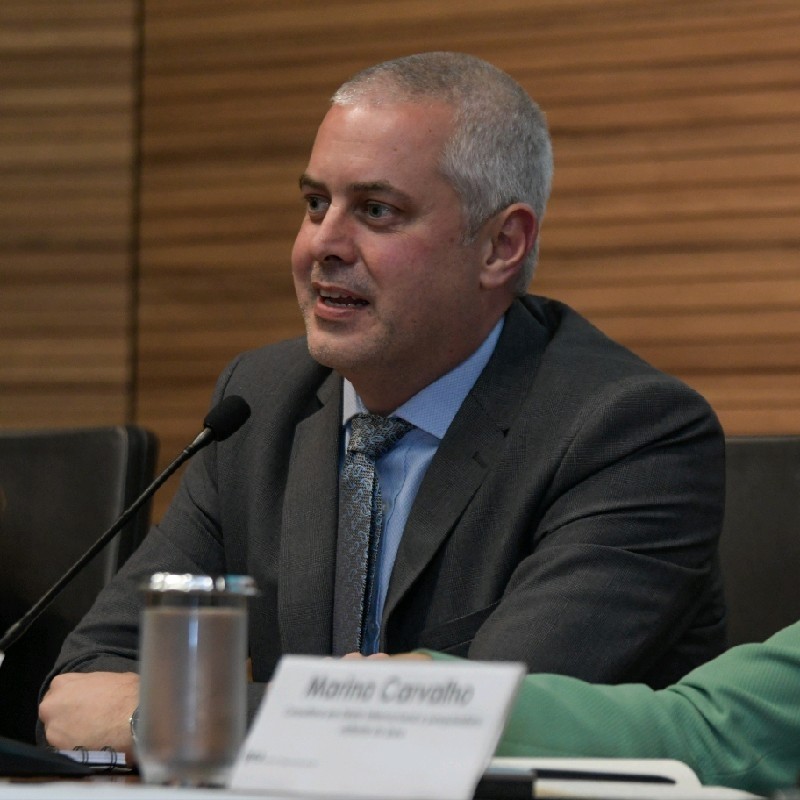
Lawyer, professor, and researcher in International Law, he holds a PhD in International Relations, with a focus in Latin American Integration, from the University of São Paulo (USP). He also holds a specialization in International Law and Regional Integration from the University of Barcelona.
He served as a senior legal advisor at the MERCOSUR Secretariat (2015–2020) and as a tenured professor of International Relations at the Federal University of São Paulo (2013–2022), as well as a visiting researcher at IPEA (2021–2024).
He is currently a member of the Legal Committee of the Brazilian Federation of Down Syndrome Associations (FBASD), the Commission on the Rights of Persons with Disabilities of the Brazilian Bar Association (OAB), and the Executive Committee of the National Movement for the SDGs in the City of Santos. His work combines academic production, international consulting, advocacy for regional integration, and activism in defense of the rights of persons with disabilities.
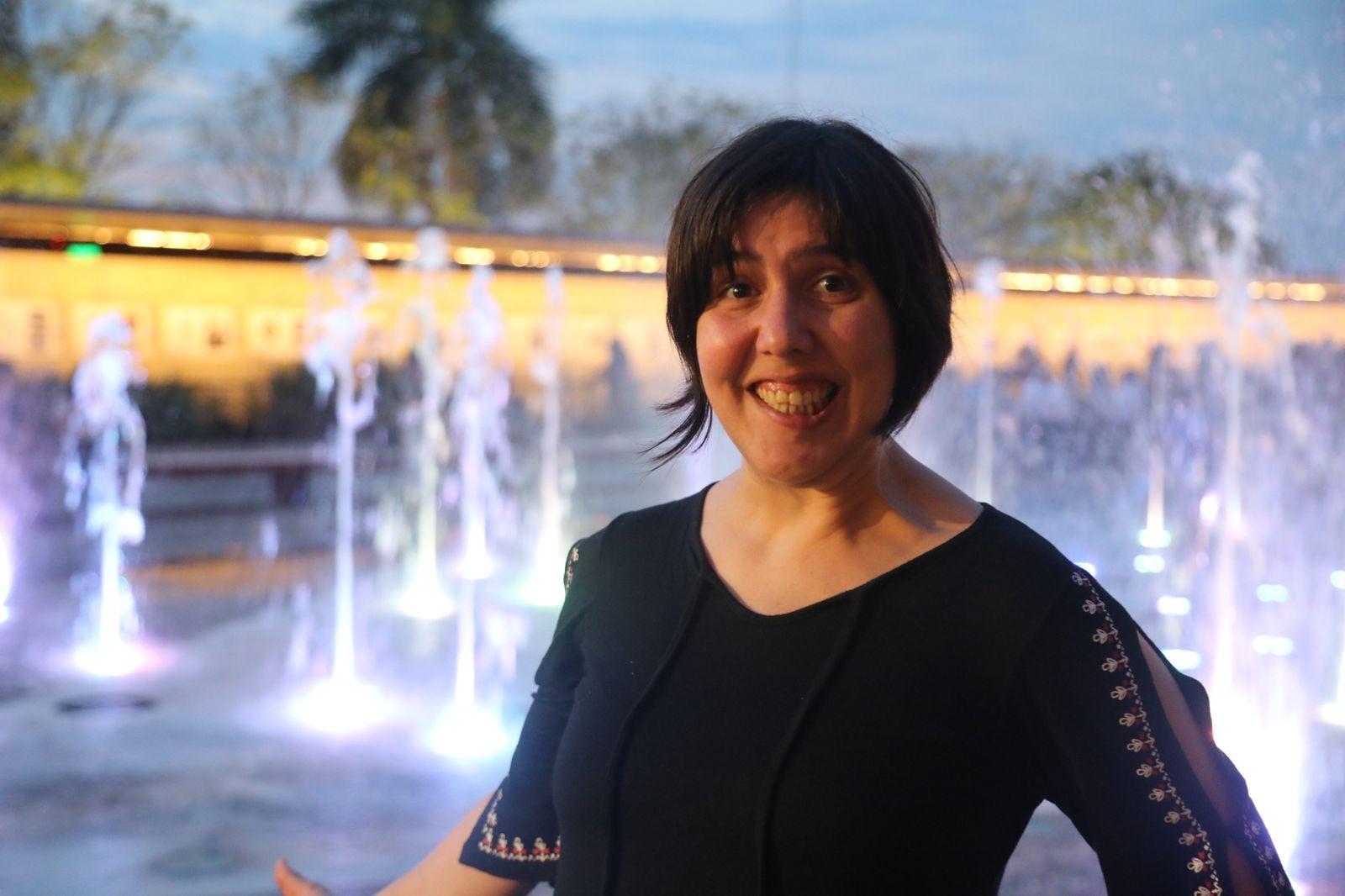
She holds a degree in Psychology and a master's degree in Psychology and Education. She is the president of the Inter-American Institute on Disability and Inclusive Development (IIDI).
Natalia is a co-founder of the Youth Movement M.E.T.A. (We Are All in Action Movement), which brings together young people from the Dominican Republic, Argentina, Peru, Brazil, Costa Rica, Nicaragua, and Uruguay. She is also the coordinator of the Luz de Frida project, which addresses the intersectionality of gender and disability.
She works at the Montevideo City Hall in the Gender Equality Advisory Division.
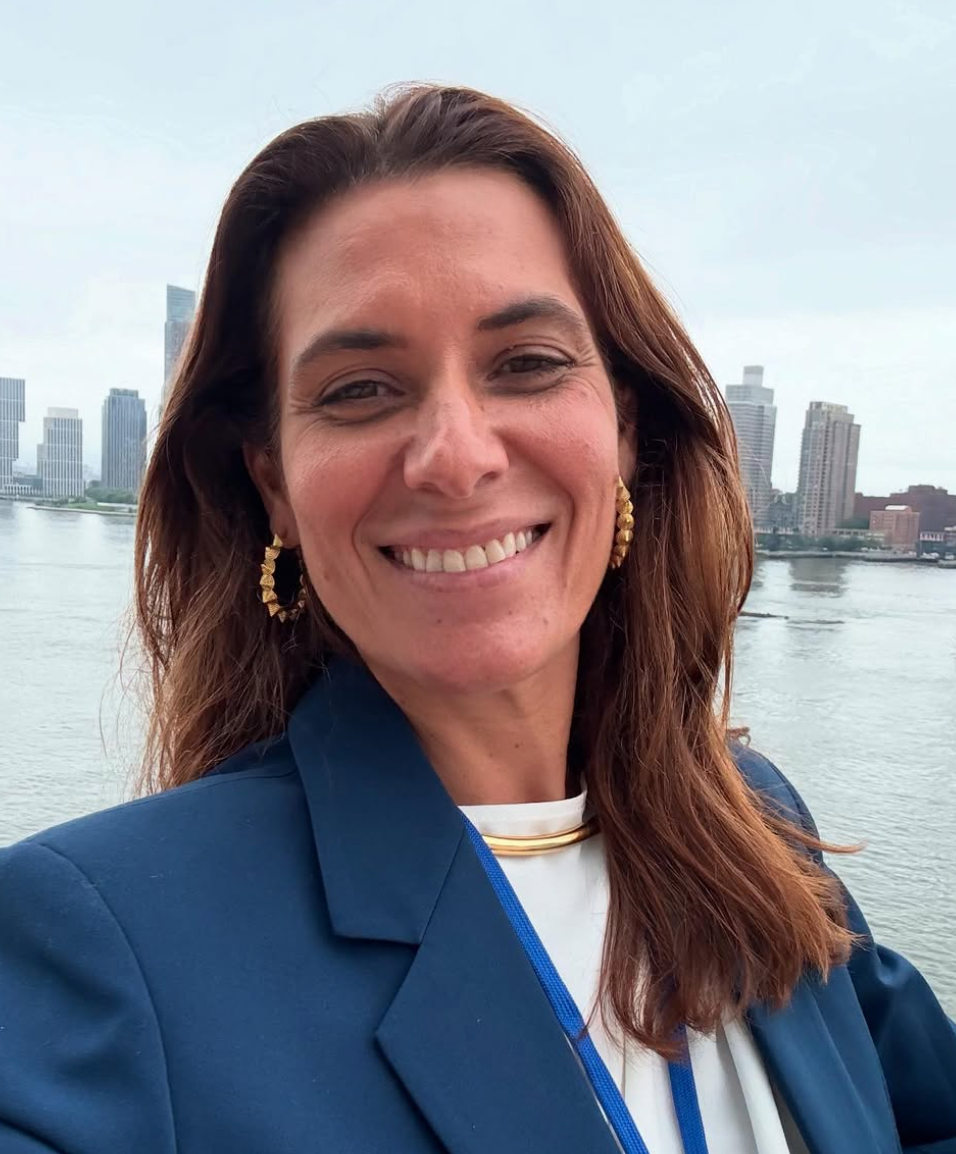
Master's degree in Public Health from Fiocruz. Bachelor of Laws from the University of Brasília. Director of the Reference Center for Inclusive Education (SESC Senac).
Founder of the Reference Center for Integral Education and member of the UNICEF Accessible Digital Textbook Initiative.
Fellow of the Creative Learning Program at the Media Lab/MIT. Co-founder of the Down Movement.
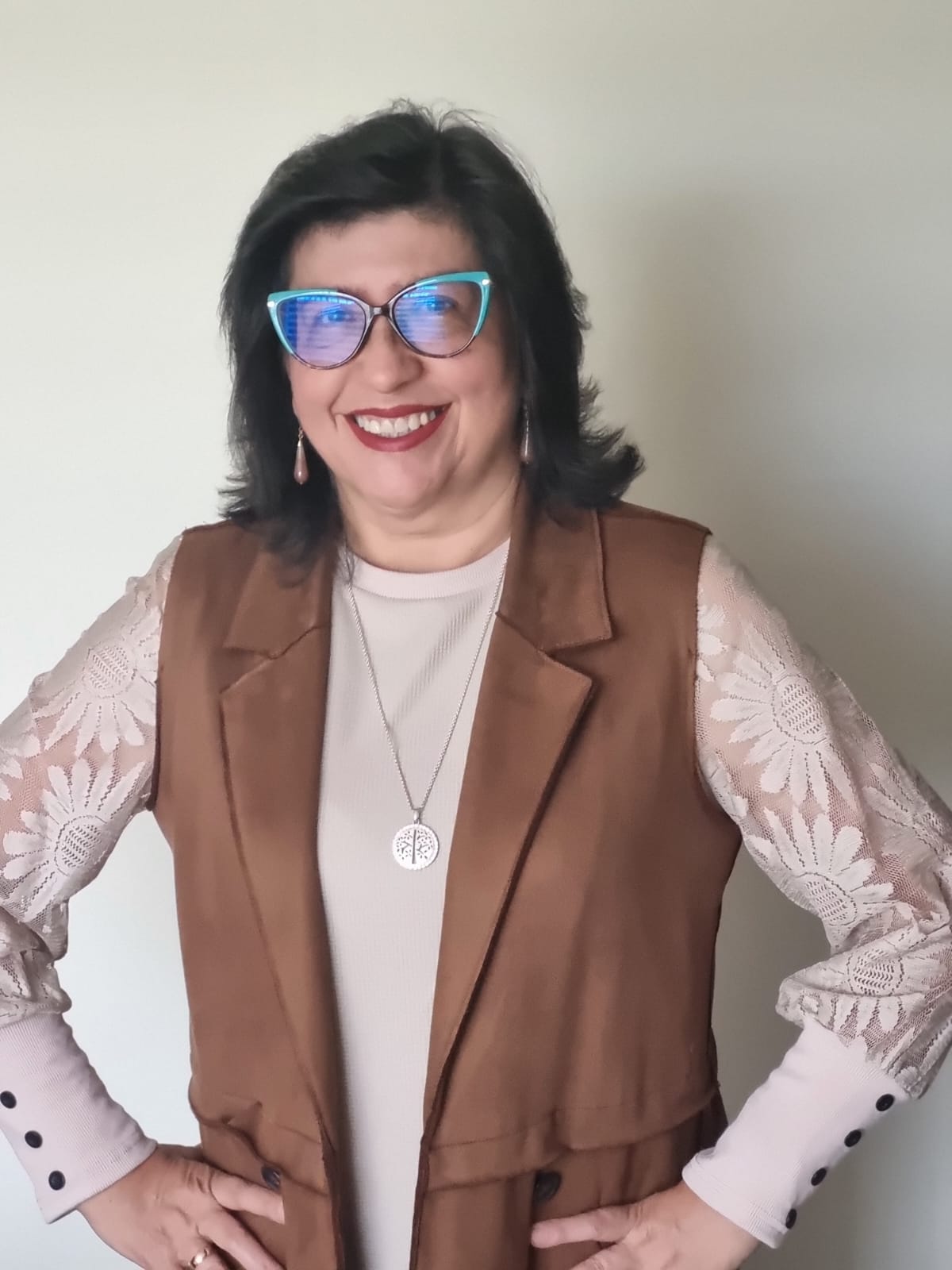
Executive Director of Asdown Colombia, an organization dedicated to the inclusion of people with intellectual disabilities and their families, she has worked for years to strengthen inclusive education and citizenship policies. Her career combines project management, advocacy, and applied research.
She has served as a consultant for the World Bank, the Inter-American Development Bank (IDB), and UNICEF, conducting studies on barriers to educational inclusion. She is also the founder of the Regional Network for Inclusive Education in Latin America, which articulates experiences and best practices in several countries.
With a degree in Literature from the Industrial University of Santander, she has represented organizations of people with disabilities on national and international councils. She is a recognized expert in inclusive education, cognitive accessibility, and the empowerment of families and self-advocates.
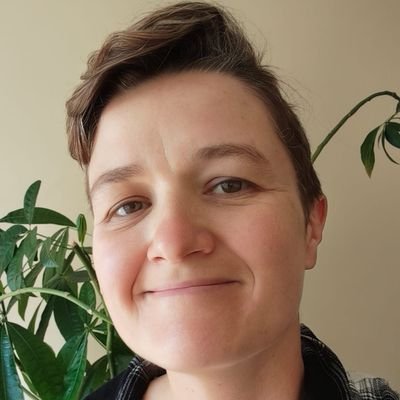
A communicator and specialist in cognitive accessibility, she holds a degree in Journalism and a master's degree in Universal Accessibility in Smart Cities. She has worked on inclusive communication projects for over a decade. At Plena Inclusión Spain, she was head of the cognitive accessibility department, coordinating a national network of experts and leading the adaptation of dozens of publications into Easy Reading formats.
In addition to her institutional practice, she works as an instructor in accessible communication and digital media workshops. Her work connects technology, accessibility, and social inclusion.
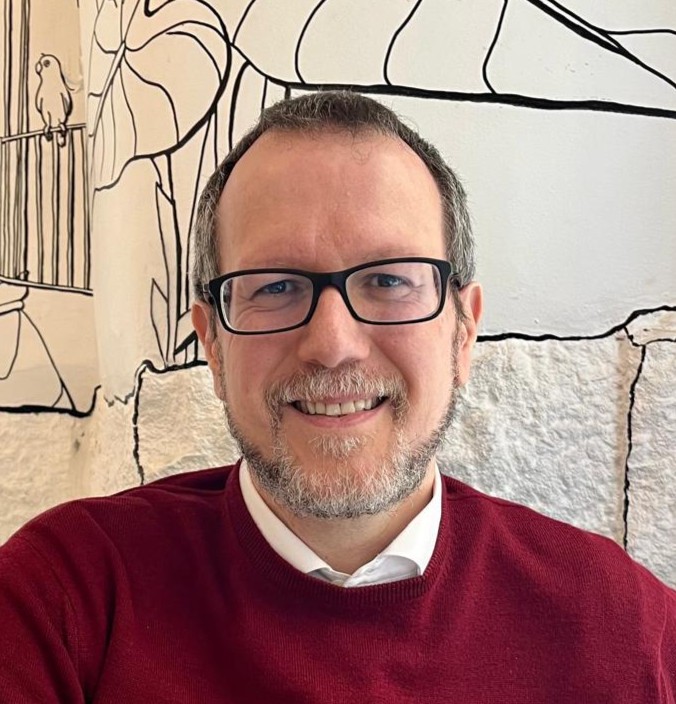
A specialist in Easy Reading and Plain Language and a researcher at the Nebrija Spanish Observatory, she is the founder of the Dilofácil project and has over 12 years of experience in cognitive accessibility, both in digital environments and in editorial publications. He was the accessibility coordinator at Plena Inclusión Madrid, leading initiatives such as Salud más fácil (Easy Health), Diccionario fácil (Easy Dictionary), and the European project Train2Validate (2020–2023), recognized as a best practice by the European Union.
He is the author of the book "Easy Reading: Writing and Assessment Methods" and co-author of works on text adaptation and validation. He also teaches postgraduate programs at several Spanish universities, contributing to the training of professionals in this field.
He is a member of the UNE standardization committees on Plain Language, Easy Reading, and Accessibility, and is also a member of international networks such as Clarity International and the PLAIN Association. His work combines practice, research, and institutional coordination to promote inclusion.
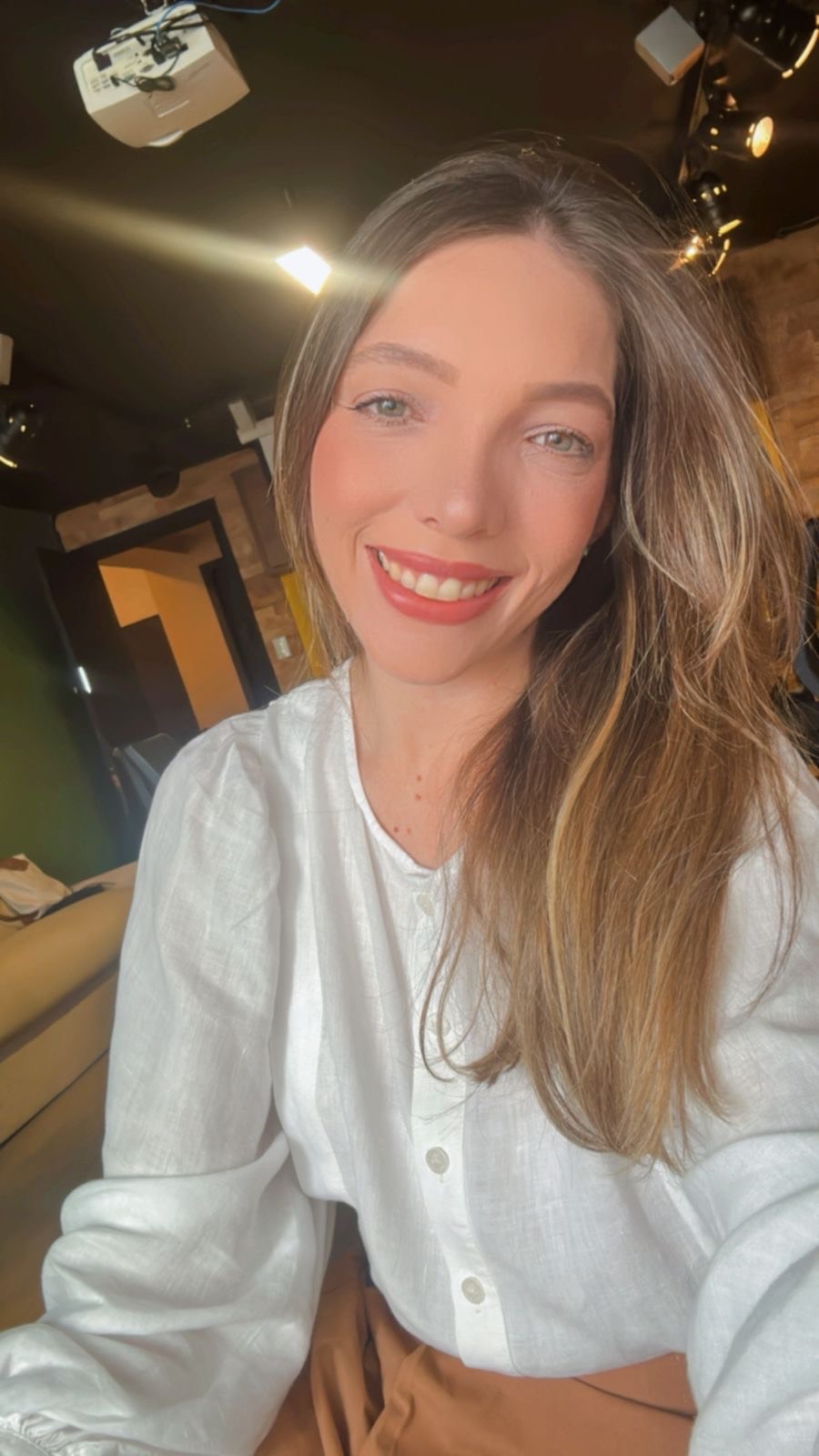
Lawyer specializing in Intellectual Property and Human Rights. She holds a Master's degree in Intellectual Property and Technology Transfer for Innovation from the University of Brasília (UnB). She was president of the Human Rights Council of the Federal District (2022–2023).
She has developed a career in government relations and human rights, with a strong focus on legislative proposals, institutional advocacy, and representation in national and multilateral forums.
She participated in legislative negotiations on Plain Language in Brazil, such as the Bill 6.256/19. Her career connects the protection of innovations and works with the advocacy of accessibility and inclusive communication practices.
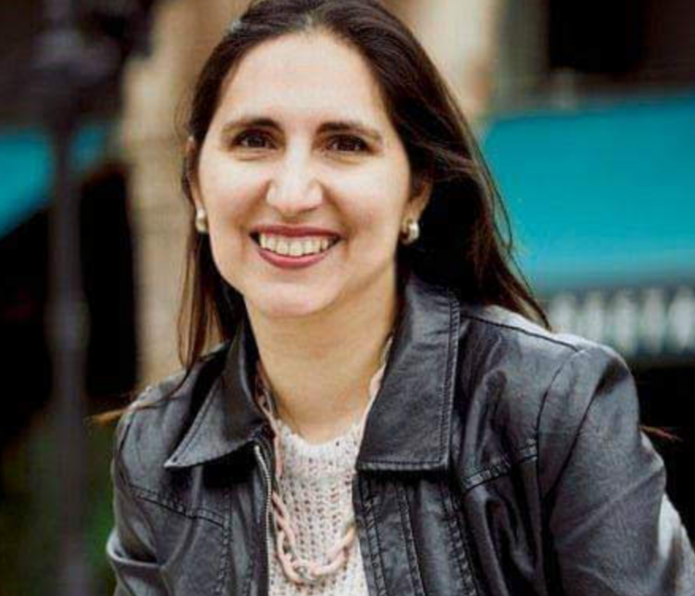
Lawyer. University professor and tutor. Writer, adaptor, and editor in clear and user-friendly language, intralingual mediator, and legal design specialist.
Therapeutic counselor. Family activist. Co-founder and consultant of the Visibilia Foundation (Argentina), a pioneering organization in cognitive accessibility and Easy Reading. She regularly participates in national and international courses, conferences, workshops, and forums, disseminating and promoting accessibility, inclusion, and social innovation.
Currently, she heads the Social Innovation Unit for Disabilities of the Buenos Aires City Government and was previously Undersecretary for Disabilities of the City of Buenos Aires.
%2017.09.14_37b19893.jpg)
Journalist, Master's degree in Disability Studies, and specialist in Plain Language and Easy Reading, she worked at the National Coordination for the Rights of Persons with Disabilities.
A former board member of Down Syndrome International, she is a co-founder of the Down Movement and the Latin American Network for Easy Reading and Simple Reading. She participated in the drafting of the UN Resolution on easy-to-understand communication and Bill 6.256/19 on Plain Language.
She is the organizer of the guide on Language, "Simples Assim" - communicate with everyone, and co-author of the project "Eu Me Protejo" - inclusive education for preventing violence in childhood.
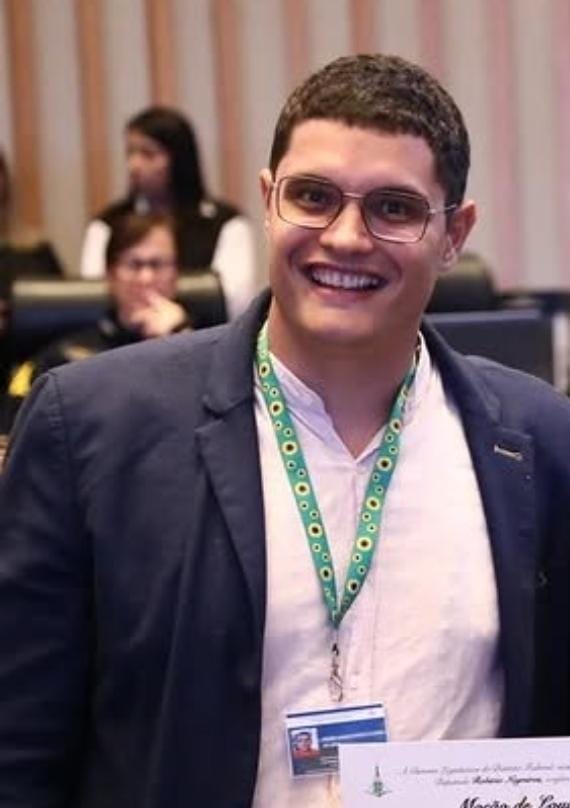
A researcher and educator specializing in inclusion and autism, he holds a doctorate in Developmental and School Psychology from the University of Brasília (UnB) and a master's degree in Special Education from Fernando Pessoa University (Portugal). He is also a pedagogue, with degrees in Psychopedagogy, Educational Guidance, and Educational Psychology.
He works as a Specialized Educational Services teacher and as a trainer in undergraduate and graduate programs. His Her research combines Historical-Cultural Theory and Critical Studies on Autism, applied to inclusive pedagogical practices.
He is dedicated to the study of plain language for teaching autistic students, Universal Design for Learning, and accessibility in education. Her work combines academic research, teaching experience, and a commitment to school inclusion.
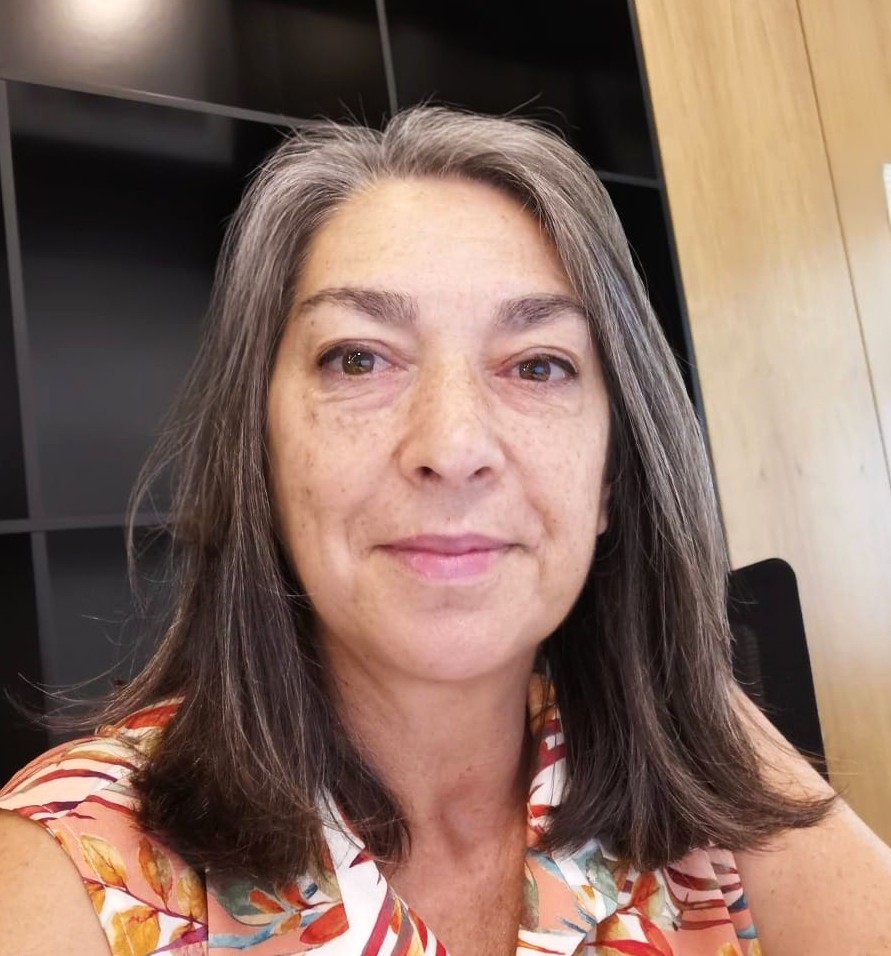
A specialist in cognitive accessibility and Easy Reading, she has dedicated over 25 years to promoting inclusion and human rights. She began her career at FENACERCI in 1998, leading projects focused on rights, legal capacity, access to justice, and accessible communication.
Since 2011, she has supported the European Platform for Self-Advocates (EPSA), where she organized seven editions of the Hear Our Voices! conference and developed training programs for self-advocates, families, and organizations. He also participated in the development of the accessible version of the CRPD in Portuguese and wrote the chapter on Portugal in the Handbook of Easy Languages in Europe (2022).
In 2024, he assumed the vice-presidency of the CRPD Monitoring Mechanism in Portugal, strengthening its role in monitoring the implementation of the UN Convention. Today, he dedicates himself exclusively to supporting self-advocates across Europe, combining practice, advocacy, and training.
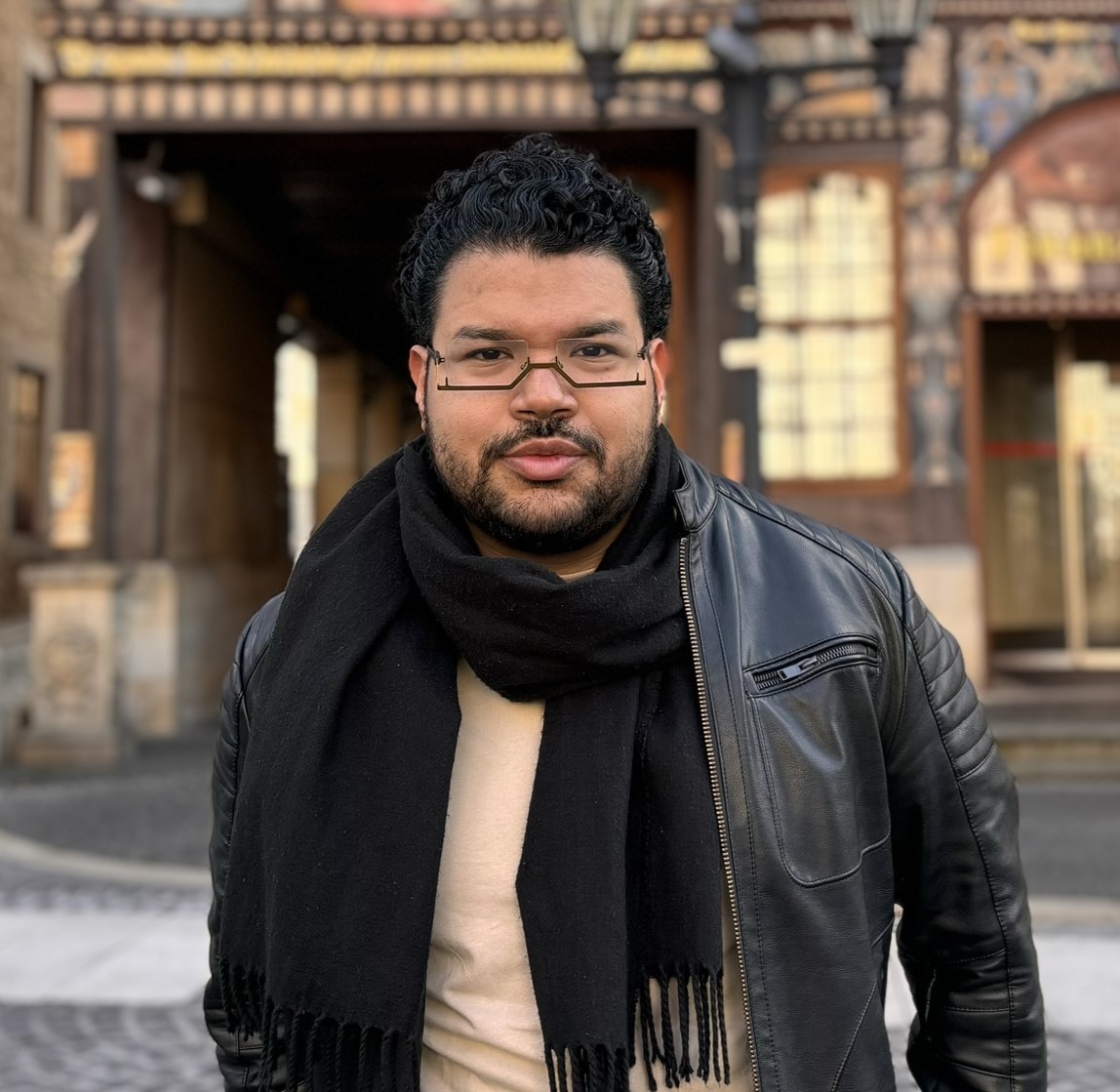
Research Assistant at the University of Hildesheim. He serves as Managing Director of the Easy Language Research Center.
His research interests lie in the areas of accessibility, easy and clear language, intralingual translation using artificial intelligence, audiovisual translation, and accessibility in Latin America.
His recent research project focused on accessible communication in healthcare during the COVID-19 pandemic in Colombia.
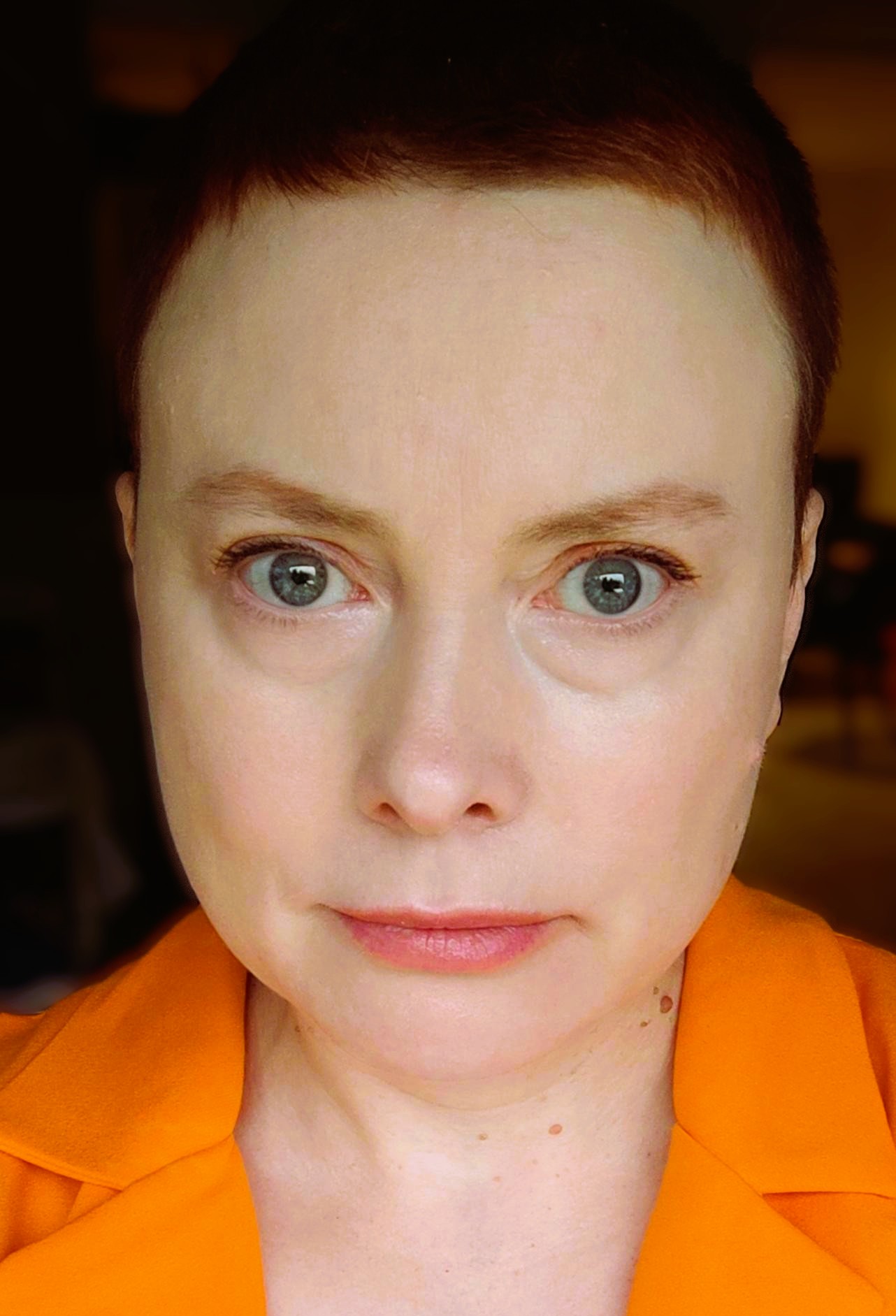
Director of Zavod RISA, an organization dedicated to human rights, independent living, and accessibility, she has a background in cultural anthropology, art therapy, and social work. Her career combines academic research and community practice.
She is a co-author of the Slovenian Easy Reading Guidelines (2018) and co-founder of ELIN – Easy Language International Network, which connects researchers and professionals from around the world. She also works on developing innovative tools and services to support the autonomy of people with intellectual disabilities.
From 2022 to 2024, she coordinated the European SELSI project, which produced pioneering guidelines for Easy Spoken Language, and currently leads UNITY, which focuses on the democratic participation of people with intellectual disabilities and other disabilities.
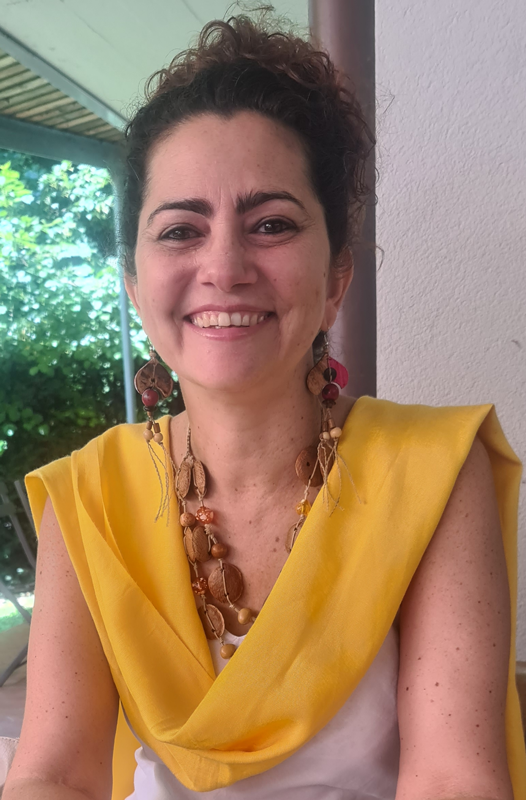
A specialist in diversity, equity, and inclusion, she is a social entrepreneur and international activist in social justice, advocacy, and talent management. Her multicultural identity—with African, Indigenous, and European roots—inspires her worldview and professional practice.
She works in community leadership development and inclusive training, bringing the voices of marginalized groups into decision-making spaces. She uses participatory facilitation and critical pedagogy methodologies, drawing on thinkers such as Paulo Freire and Edgar Morin.
With experience in global human rights networks, she develops projects that combine intersectionality, inclusion, and social transformation. Her work focuses on strengthening communities and building impactful collective solutions.
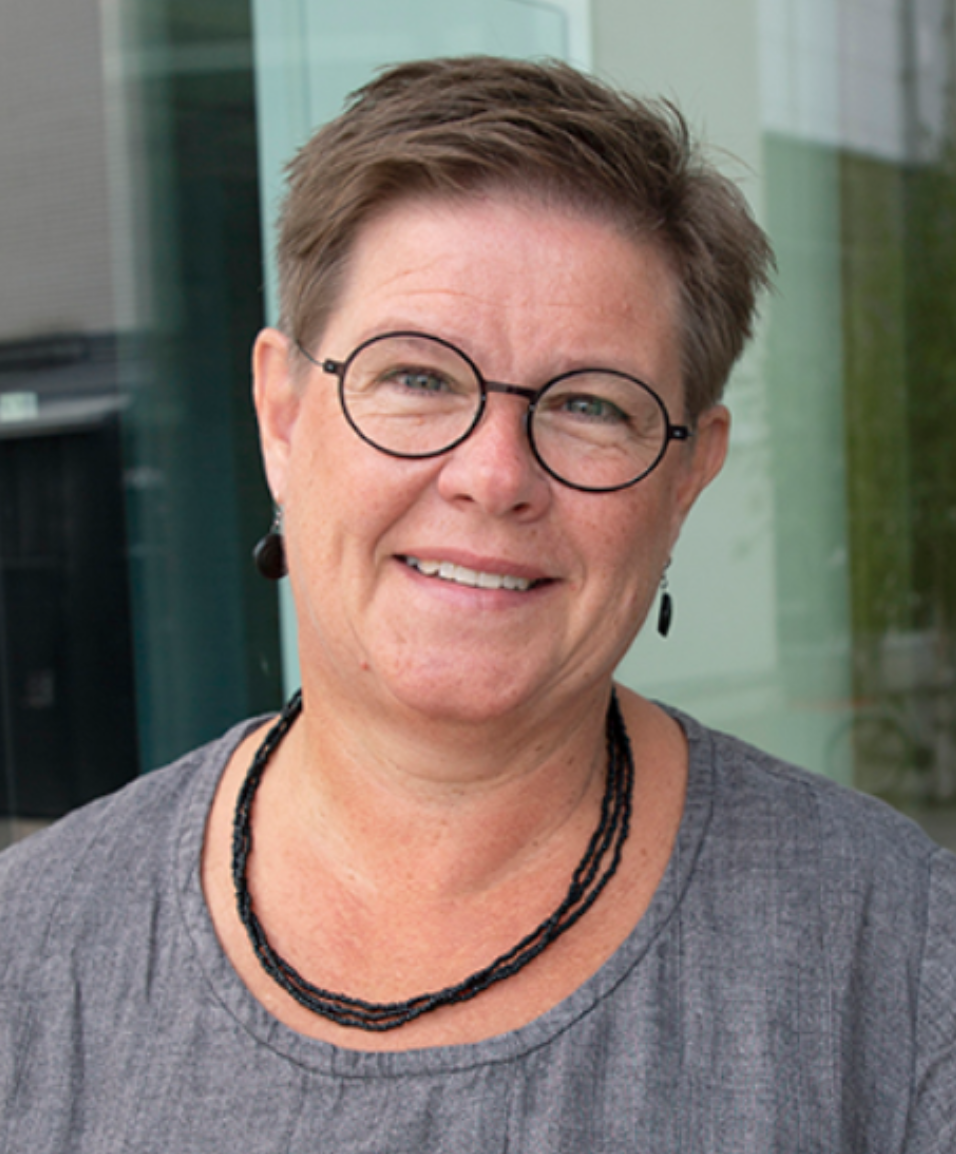
Founder of the Nordic approach, she is a historical reference in the promotion of Plain Language/Easy Reading as a public policy in Sweden. She was the director of the Easy Language Service at the Swedish Center for Easy Reading and responsible for communications at the Swedish Agency for Accessible Media.
With over 30 years of experience in accessibility, intercultural communication, and human rights, she has built a pioneering career in strengthening reading and information as tools for inclusion. Since 2018, he has led Boarve konsult AB, a company dedicated to training, lectures, and editorial services in Easy Reading.
She participates in several national and European projects and has presented conferences, workshops, and training courses in various countries. His work has helped consolidate Easy Reading as an internationally recognized practice, inspiring public policies and inclusion initiatives in various parts of the world.
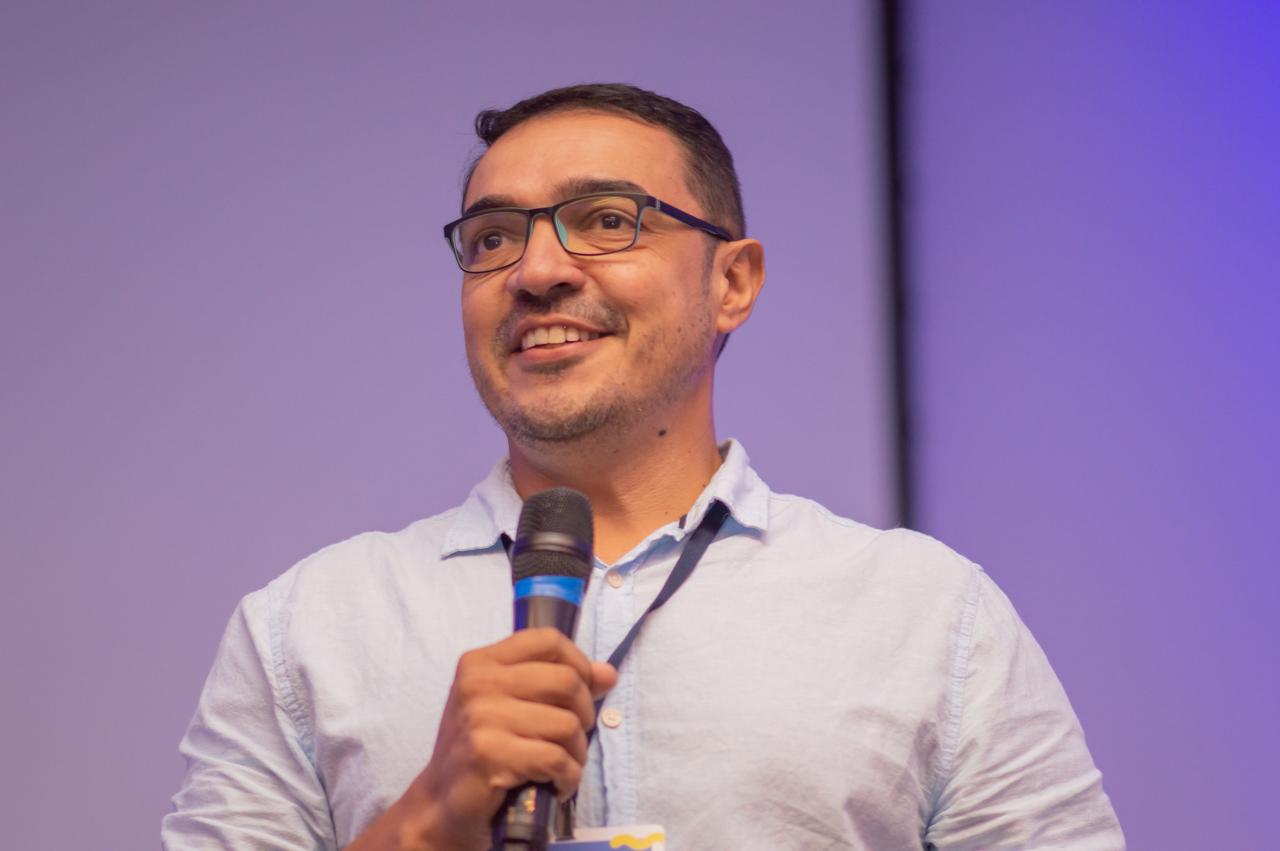
Computer scientist and coordinator of LabLuz at the Court of Justice of Ceará, he holds a master's degree in Applied Computer Science and MBAs in IT Management and Judicial Management. He won the Santander Innovation Award.
At the TJCE, he develops projects that combine simple language, visual law, and technology, applied to topics of great social impact, such as the accessible explanation of sentence progression.
He also works as a researcher and speaker on innovation and judicial communication. His work seeks to bring the Judiciary closer to citizens, making legal language clearer and transferable.